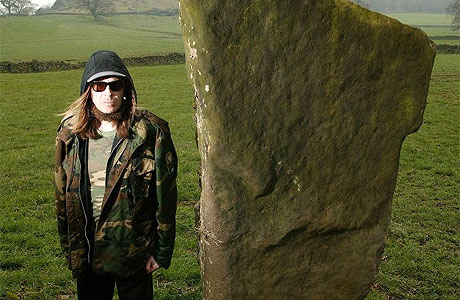 BOOKS
BOOKS In Which A Forgery Just Breaks Our Heart
 Friday, August 7, 2009 at 9:35AM
Friday, August 7, 2009 at 9:35AM 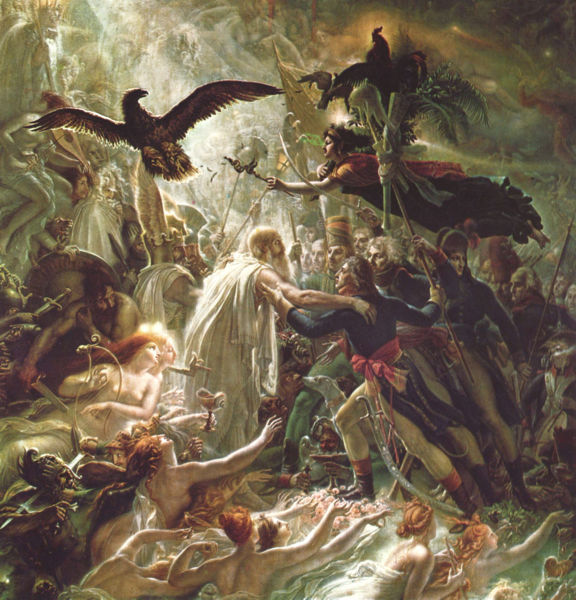
Disrupt the Mass
by OWEN ROBERTS
"Beware of false prophets," He had said, "who come to yo in the clothing of sheep, but inwardly they are ravening wolves."
Matthew 7:15
History, Christian history especially, is apparently chock full of such "false prophets," whose forgeries and false documents are often incorporated into history until proven false by scholars. For example, one such forger wrote a story, supposedly derived from William Cecil's memoirs, in which a member of Christ Church in Dublin placed a blood-soaked sponge on the crucifix at the altar in order to disrupt the mass. The blood was revealed to be a hoax, leading to Queen Elizabeth's decision to ban the crucifix from Anglican churches. This is pretty confusing, because it's a made up story about a hoax. I don't even know if there are crucifixes in Anglican churches, or if they were ever banned; I mean, I know that Catholic churches have Jesus on the cross and Protestant ones don't (p.s. I'm sort of Catholic), but I don't know why.
Mary, Queen of Scots, beheaded in 1587, convicted of conspiracy in part because of falsified letters and documents "discovered" by political enemies.
Anyway, the guy who made this up was Robert Ware. He basically doesn't exist; he doesn't have a Wikipedia entry and I can't find any pictures of him anywhere. Here's a picture of his father, Sir James Ware. I imagine they look somewhat alike.
Robert Ware had an advantage as a forger, because his father was an important historian of Irish and Catholic history. For the most part, the younger Ware pretended to discover manuscripts his father had written to pass them of as authentic, but R. Ware's writing was satirical and intended to undermine the Pope, Catholicism, the Jesuits, Puritans, and even Protestants. For some reason Ware's relationship with his father made me think of this.
Pius V, pope from 1566 to 1572. Ware made up stories about him, a century later.
Besides making fake manuscripts and attributing them to his father, Ware wrote under other names and even his own. His forgeries were not debunked until more than two hundred years later, by Thomas Edward Bridgett, who thoroughly examines Ware's forgeries in his book Blunders and Forgeries.
Ware's most notable forgeries were "The Jesuit Oath" and "Foxes and Firebrands." The former is sort of like "The Protocols of the Elders of Zion," in that it falsely constructs a sort of manifesto of the Jesuits, describing their intention to "wage relentless war, secretly or openly, against all heretics, Protestants and Liberals...to extirpate and exterminate them from the face of the whole earth" and that it is still used to condemn Catholics today, either by stupid people who never heard that it was fake, or by malicious people who tell stupid people about it.
Foxes and Firebrands is a little crazier, if only because it is about two hundred and fifty pages long. Seriously, I found a PDF on EEBO, Early English Books Online, which I had to access by logging on through a Wesleyan University proxy server. I forgot how absurd Early English scholarship is. In college I took a class called Historicising Early Modern Sexualities. I was mostly interested in the Shakespeare, but I learned a lot of other crazy shit about the time period.
It seems that fake documents, forgeries, conspiracy theories, general hysteria and loads of other crazy shit were pretty much rampant at the time. The scholarship specifically on forgeries is sort of a fringe thing. All of the primary sources are basically impossible to read, because the language is a little different and the grammar and style is totally fucking bizarre. I guess I like the idea of reading these texts much more than I actually like reading them. Fortunately, Bridgett's book was written in 1890 and you can actually read it.
image from Early Modern anatomy text by Abrose Pare
The name Foxes and Firebrands comes from the story of Samson, the part where Samson "attaches torches to the tails of three hundred foxes, leaving the panicked beasts to run through the fields of the Philistines, burning all in their wake."
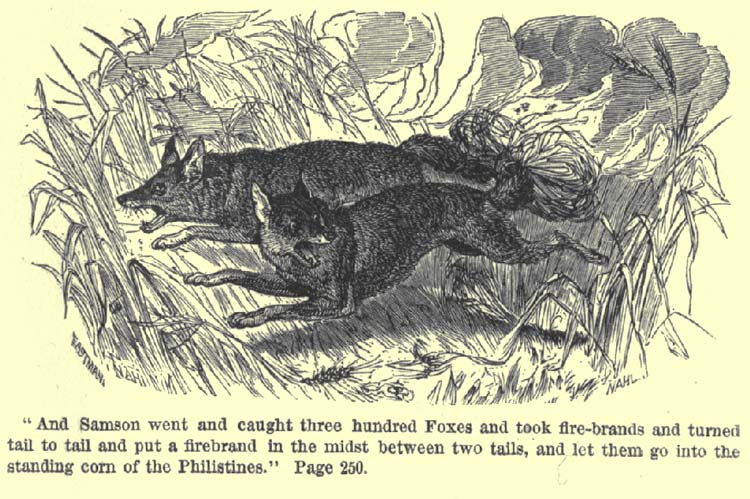
I think the idea here is that the foxes are Catholic priests, and their sects are the firebrands attached to their tails, which destroy the fields of the Protestants and the Church of the State (that being England as Ireland was still controlled by England at the time). So I guess that makes Samson the Pope? Basically, Ware really didn't like the Pope or papists. The source of his hatred is not really clear. It was a weird time in history to be anti-Pope, because while the great majority of Ireland was Catholic, it was ruled by a Protestant government, because Catholics were banned from Parliament after the Irish Rebellion of 1641. You get the sense that the dude was just fucking around, though his intentions were malicious.

I guess that's what I find so crazy about Foxes and Firebrands. Ware was totally just making shit up, and the thing is 250 pages long. I mean, I understand the excitement one must get from tricking people, especially serious historians for hundreds of years, and maybe he really did hate the pope a lot, or Catholics, or religion in general, but he still had to spend a lot of time writing this fake history book, which is probably pathological. I mean, it's admirable in a way. It takes a lot of cojones to do something ridiculous like that and then actually convince people that its real. Or I guess you just have to be a crazy person.
EEBO attributes "Foxes and Firebrands" to both Ware and John Nalson, who was a real historian and lived around the time of Robert Ware--his date of birth is unknown but he died in 1686, ten years before Ware (at least according to EEBO). Bridgett sort of implies that Nalson allowed the book to be published under his name, which makes a certain amount of sense, because Nalson was apparently English and favored the Church of England. But really I don't think there's any way of knowing whether he even knew about "Foxes and Firebrands" or whether he allowed it to be published under his name.
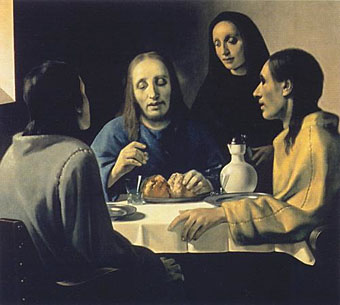
I found an abstract of a book on forgery, Forgery from Antiquity to 1700, by John Lewis, but unfortunately it's not at the library or on Google books, but the Foreword does contain this amazing sentence: "Like dark shadows over the wide vistas of Western literature, the subtle arts of the literary forger have always been found fascinating," and the Introduction describes the motivations behind literary forgery, which are: the delight in passing one's own work off as another's, money, religion, politics, blackmail, something else (it's gets confusing and he stops numbering them after "second" though apparently there are six). But he didn't include "being fucking crazy," despite the fact that he talks about Ware for two paragraphs (also crazy is that Ware, apparently among the nine greatest forgers in history (although you have to assume that the actual "greatest" forgers in history would be unknown, because their forgeries would not have been discovered) according to Lewis, doesn't even have a Wikipedia page). Anyway, from what I can tell, R. Ware basically got away with all of this, while his dad went to prison twice for being truthful about his own political views.
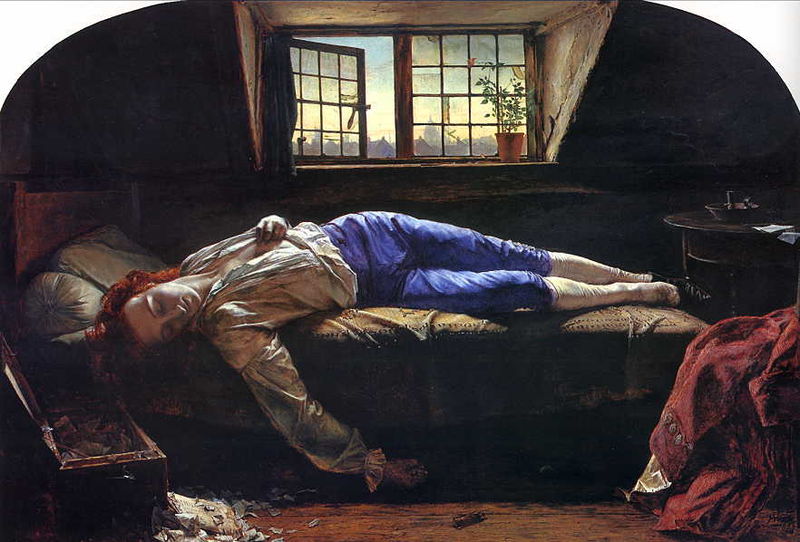
It seems like it would be harder to pull shit like this today, because of "mass media" and "the Internet" and all of that stuff, it's a lot easier for people to do research and determine whether or not something is authentic. Back when the printing press was still a relatively new invention, and information was difficult to come by, it was probably easier to fake documents and pass them off as real, without anyone realizing for a while. It kind of makes you wonder about history in general. This is going to be a slightly asinine point, but a lot of the crazy people you read about in these texts, the "false prophets," don't seem much different from say, Abraham, or Moses, or whoever wrote the Bible, you know, they all sound like schizophrenics to me (I think I made a point like that in my tenth grade English class as well).
I'm not a historian, but it actually seems kind of cool if your job was reading really weird texts and trying just to figure out if they're even true or not. I can't really think of a modern day equivalent. I mean, obviously there are hoaxes all the time, and the ones that worked won't be discovered for a while. I guess there's JT LeRoy, and James Frey. Basically, I wish that I was crazy enough to makes some literary forgeries of my own.
Owen Roberts is the senior contributor to This Recording. He last wrote in these pages about Boy Meets World.
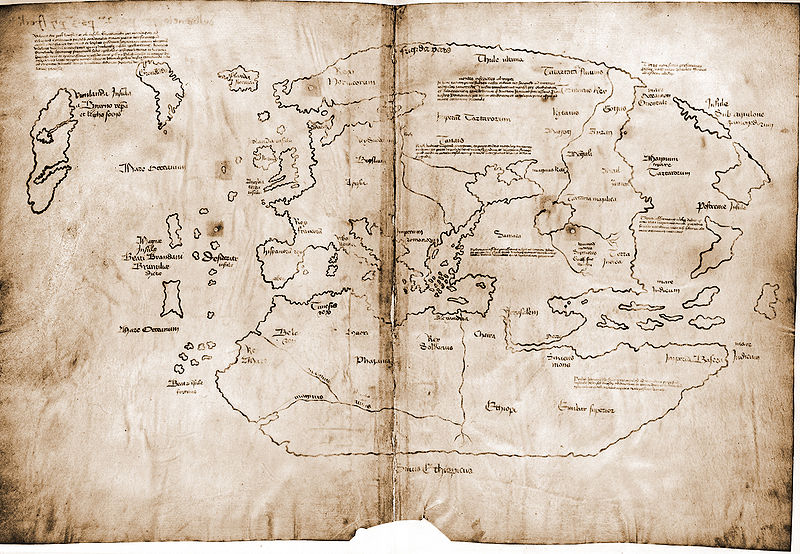
"Death Becomes You" — Brain Donor (mp3)
"Emerging, Shadow of My Corpse" — Brain Donor (mp3)
"Gates of Skagerrak" — Brain Donor (mp3)
